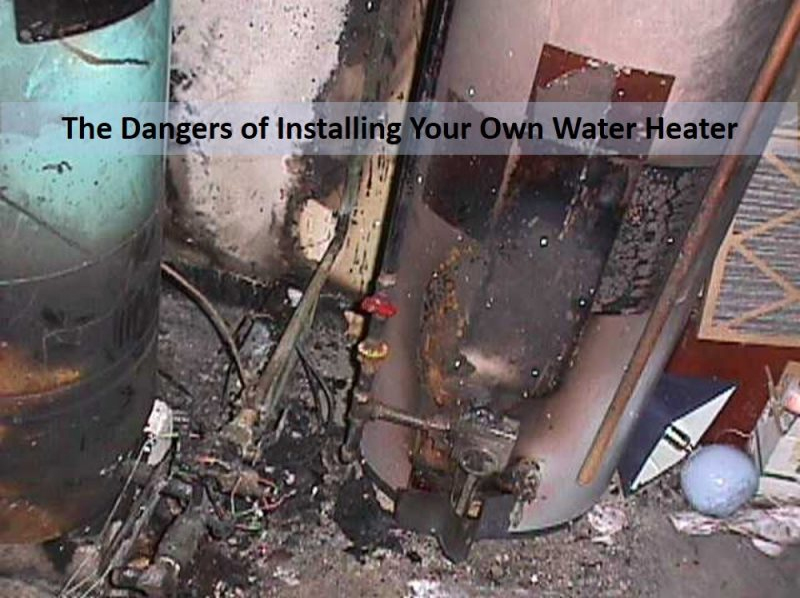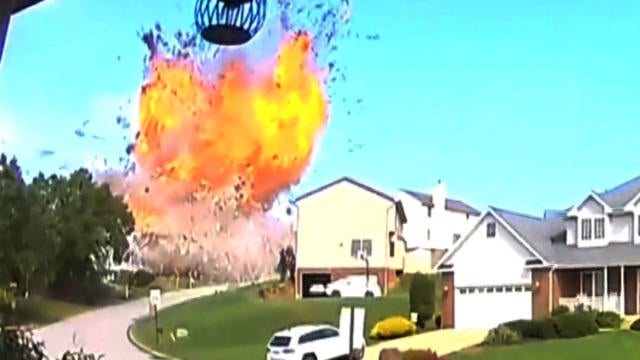Yes, a water heater explosion can be fatal. Such incidents can cause severe injuries or even death due to scalding or debris.
Water heaters are essential for daily comfort, providing hot water for showers, cleaning, and cooking. Despite their benefits, they can pose serious hazards if not properly maintained. An explosion typically results from pressure buildup or faulty components. These incidents often lead to extensive property damage, injuries, and even fatalities.
Understanding the risks associated with water heaters is crucial for homeowners. Regular maintenance and inspections help prevent dangerous situations. Awareness of warning signs, such as strange noises or leaks, can also enhance safety. Taking proactive steps ensures your water heater operates efficiently and reduces the risk of catastrophic failures.
Page Contents
- 1 The Risks Of Water Heater Explosions
- 2 How Explosions Occur In Water Heaters
- 3 Potential Fatalities From Water Heater Explosions
- 4 Real-life Accounts
- 5 Safety Features Of Modern Water Heaters
- 6 Regular Maintenance To Prevent Disasters
- 7 Emergency Preparedness And Response
- 8 Legal And Insurance Considerations
- 9 Conclusion
The Risks Of Water Heater Explosions
Water heater explosions can be very dangerous. They can cause serious injuries or even death. Several factors lead to these explosions. Poor maintenance is a major reason. Old or faulty equipment can also cause problems.
Another factor is pressure buildup. If the pressure relief valve fails, the tank may explode. Corrosion in the tank can weaken it over time. This increases the risk of a blast.
| Year | Incidents |
|---|---|
| 2018 | 20 |
| 2019 | 25 |
| 2020 | 30 |
| 2021 | 18 |
| 2022 | 22 |

Credit: www.wsmithplumbing.com
How Explosions Occur In Water Heaters
Water heater explosions can happen due to gas leaks. A gas leak occurs when gas escapes from pipes or fittings. If a spark ignites this gas, an explosion can occur.
Pressure build-up is another reason for explosions. When water inside the heater heats up, it turns into steam. This steam creates pressure. If the relief valve fails, pressure can build up too high. This may lead to a dangerous explosion.
| Cause | Explanation |
|---|---|
| Gas Leak | Gas escapes and ignites, causing an explosion. |
| Pressure Build-Up | Steam creates pressure; valve failure can lead to explosions. |
Potential Fatalities From Water Heater Explosions
|
Water heater explosions can be deadly due to extreme heat and pressure. Direct impact of blast can cause severe burns and fatal injuries. Secondary dangers include flying debris and potential fires. Quick action is crucial to prevent catastrophic consequences. |

Credit: www.reddit.com
Real-life Accounts
Real-life accounts reveal the shocking dangers of water heater explosions. These incidents can lead to serious injuries or even fatalities. Understanding the risks and safety measures is crucial for homeowners to prevent potential disasters.
| Real-Life Accounts |
| Survivor Stories |
| Fatal Cases and Investigations |
Safety Features Of Modern Water Heaters
Modern water heaters have important safety features. One crucial feature is temperature and pressure controls. These controls prevent the water from getting too hot or too pressurized. If the limits are exceeded, the heater can release pressure safely.
Another key feature is flame arrestor technology. This technology stops flames from escaping the heater. It helps to keep the area around the water heater safe. Both features work together to prevent dangerous situations.
Regular Maintenance To Prevent Disasters
Regular maintenance can help prevent dangerous water heater explosions. A simple routine inspection is key. Check the pressure relief valve regularly. Look for leaks around the tank. Make sure the temperature is set below 120°F. This helps avoid scalding and reduces risks.
Follow these professional servicing guidelines. Schedule a yearly service with a qualified technician. They can inspect parts and ensure everything works well. Always check the anode rod every few years. This rod protects the tank from rust. Replace it if it’s worn down.
| Inspection Task | Frequency |
|---|---|
| Check Pressure Relief Valve | Monthly |
| Look for Leaks | Monthly |
| Temperature Setting | Annually |
| Inspect Anode Rod | Every 3-5 Years |
Emergency Preparedness And Response
Recognizing warning signs of a water heater issue is crucial for safety. Look for leaks, rust, or unusual sounds. Popping or rumbling noises often indicate a problem. Check for unusual smells like gas or burning.
Immediate actions can help prevent accidents. First, turn off the power to the heater. Next, shut off the water supply. If gas is involved, turn off the gas valve. Evacuate everyone from the area.
Call a professional to inspect the heater. Always have an emergency plan ready. Teach family members about the warning signs and proper responses. Preparedness can save lives.

Credit: www.cbsnews.com
Legal And Insurance Considerations
Water heater explosions can cause serious injuries or even death. Product liability holds manufacturers responsible for unsafe products. If a water heater explodes due to a defect, the manufacturer may face legal action. Recalls often happen when a product is found to be dangerous. Consumers should pay attention to notices about recalls.
Insurance coverage can help after a water heater explosion. Homeowners insurance may cover damages and medical expenses. It’s essential to check your policy for specific coverage details. Claims can be filed for losses caused by the explosion. Keep all documentation related to the incident for a smoother claims process.
Conclusion
A water heater explosion can pose serious risks to life and property. Understanding the potential dangers is essential for safety. Regular maintenance and timely repairs can help prevent such tragedies. Stay informed and proactive to ensure your home remains a safe environment.
Prioritize safety and take the necessary precautions.
